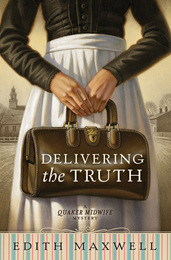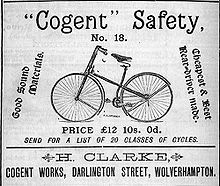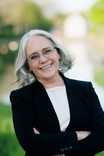|
Writers are frequently enjoined to "write what they know," and my guest blogger today has certainly taken that message to heart. Edith Maxwell, author of the the forthcoming historical mystery, Delivering the Truth, features a Quaker midwife in 19th century New England. Edith is a Quaker, has taught childbirth classes, and lives in New England. So I guess she knows what she's talking about!!!  From the official blurb: For Quaker midwife Rose Carroll, life in Amesbury, Massachusetts, provides equal measures of joy and tribulation. She attends to the needs of mothers and newborns even as she mourns the recent death of her sister. Likewise, Rose enjoys the giddy feelings that come from being courted by a handsome doctor, but a suspicious fire and two murders leave her fearing for the well-being of her loved ones. Driven by her desire for safety and justice, Rose Carroll begins asking questions related to the crimes. Consulting with her friends and neighbors―including the famous Quaker poet John Greenleaf Whittier―Rose draws on her strengths as a counselor and problem solver in trying to bring the perpetrators to light.  Bicycle of the sort Rose Carroll might have used Bicycle of the sort Rose Carroll might have used In my Quaker Midwife Mysteries, Rose Carroll is a midwife helping pregnant women give birth in the safest way possible - in the 1888 New England mill town of Amesbury. She’s twenty-four, as yet unmarried, and a Quaker. Rose is an independent businesswoman, unconventional both for going about her business on her bicycle and for being a member of the Society of Friends. Quakers have long been known for being unconventional, though, and New England Friends of the era even more so. Rose’s mother works tirelessly for women’s suffrage. Rose’s friend and mentor, the real John Greenleaf Whittier, was an outspoken abolitionist and supported equality among his fellow humans. Rose addresses everyone by their first name regardless of social class or occupation, and speaks using “thee” and “thy” as Quakers did, so she’s used to traveling outside certain norms. She’s also known for her honesty and clean living. Her clients trust her. Although there was a New England Female Medical College, which was a training school for midwives, Rose took the traditional route and apprenticed with Orpha Perkins to learn her trade. When the elderly Orpha retires, Rose takes over her business. The late 1880s is a fascinating period to write about because so much was changing, including the practice of midwifery and medicine. The germ theory of infection was known, so Rose is careful to wash her hands and keep the birthing chamber clean. A new hospital had been built across the river in the bustling seaport town of Newburyport only a few years earlier. Cesarean sections were done, but it was still a very risky procedure. And male doctors were starting to do deliveries, practicing obstetrics. I read that this practice increased in part because women working in factories were living away from their female relatives who would normally support them through the birth and postpartum period. The husband of one of Rose’s clients insists that his baby be delivered by a male doctor, but most of Rose’s pregnant clients much prefer having a woman attend them. I also read an account of a Massachusetts midwife being sued in 1905 for practicing medicine without a license. I haven’t heard of such accusations twenty years earlier, however. Of course, being a midwife makes Rose a perfect protagonist. She can go places no male police officer can – women’s bed chambers – and hears secrets the detective isn’t privy to, both during labor and at client visits. I know in earlier times midwives had a obligation to extract information from unwed mothers about the father of the baby and report him to the authorities, but I haven’t been able to unearth whether that practice still stood at the end of the nineteenth century. (See Sam Thomas' excellent post on the role of midwives in 17th century England, for example. -SC)  Meetinghouse interior. Photo by Edward Gerrish Mair, used with permission Meetinghouse interior. Photo by Edward Gerrish Mair, used with permission I’m delighted to follow Rose around the streets of my town where many of the buildings of the late 1880s still stand, including the Friends Meetinghouse where she and Whittier worship, and write down her adventures.  Edith Maxwell writes the Quaker Midwife Mysteries (Midnight Ink) and the Local Foods Mysteries, the Country Store Mysteries (as Maddie Day), and the Lauren Rousseau Mysteries (as Tace Baker), as well as award-winning short crime fiction. Her short story, “A Questionable Death,” is nominated for a 2016 Agatha Award for Best Short Story. The tale features the 1888 setting and characters from her Quaker Midwife Mysteries series, which debuts with Delivering the Truth on April 8, 2016. Maxwell is Vice-President of Sisters in Crime New England and Clerk of Amesbury Friends Meeting. She lives north of Boston with her beau and three cats, and blogs with the other Wicked Cozy Authors. You can find her on Facebook, @edithmaxwell, on Pinterest, and at her web site, edithmaxwell.com. Want to know more about the original Quakers from 17th century England? Check out my discussion of the political activities and writing of Quaker women. Or this post on their last dying speeches.
0 Comments
Leave a Reply. |
Susanna CalkinsHistorian. Mystery writer. Researcher. Teacher. Occasional blogger. Categories
All
Archives
May 2023
|
 RSS Feed
RSS Feed